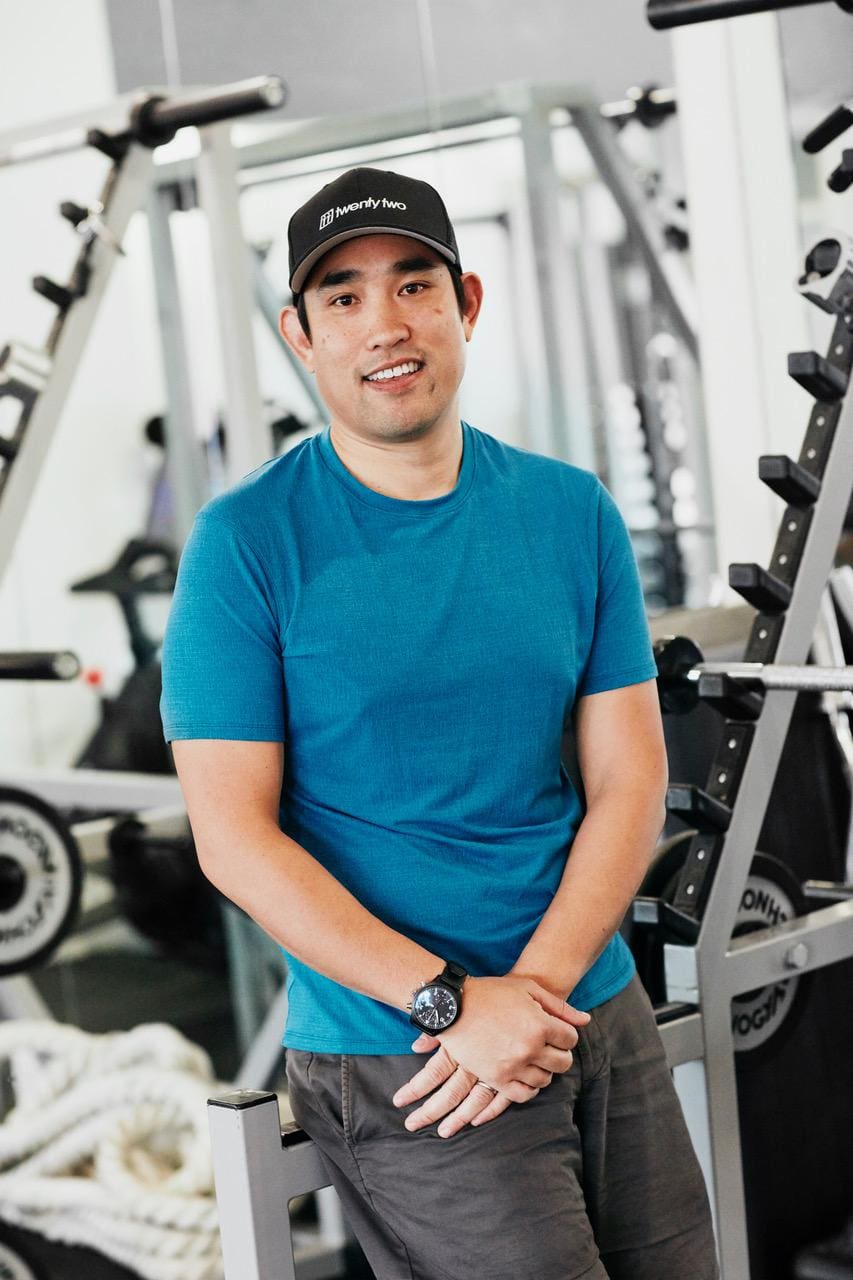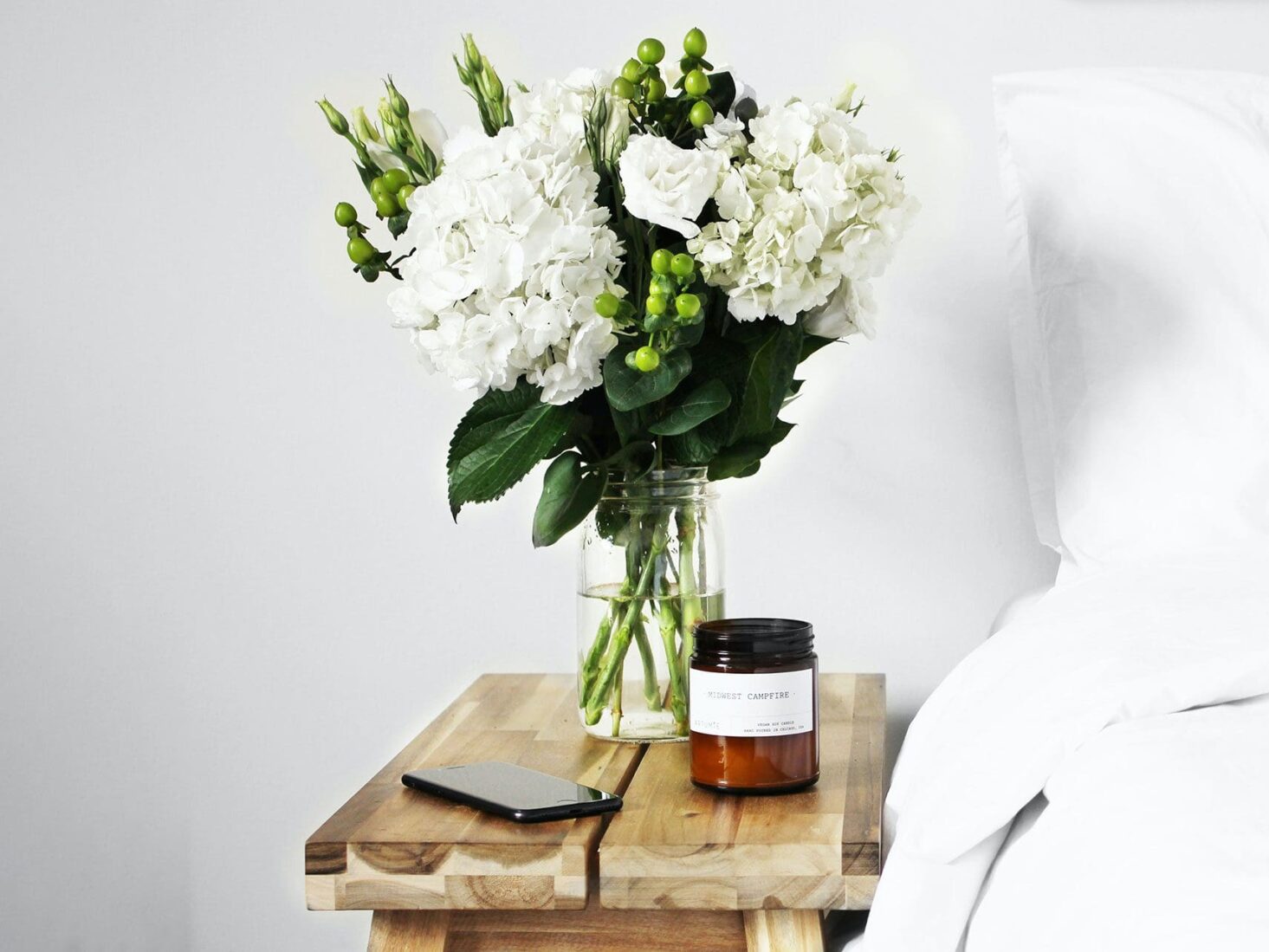
How to care for your health and wellbeing during lockdown
From self-care in the form of food, sleep and movement to relationships and parenting, the experts tell us what we can do to stave off the January blues
Monday 18th January 2021 has the dubious accolade of being dubbed the most depressing day of the year. Apparently the date was calculated using factors such as weather conditions (grim), debt level (worse), and time since failing our New Year’s resolutions – not exactly a motivating combination. Whether you think Blue Monday is exactly that or merely a marketing ploy for brands trying to sell us everything from luxury pillows (beat the blues – stay in bed!) to non-alcoholic spirits (no hangovers!), there’s no debating that 2021 hasn’t started quite as we’d all hoped.
The number of people in the UK suffering from depression has doubled during the pandemic, according to the Office for National Statistics. Prolonged periods of isolation – intensified by lockdown – can take their toll on our minds, leading to negative thoughts, bad sleeping habits and feelings of anxiety, loneliness and stress.

During the first lockdown, I wrote about a brilliant London-based charity called Duty To Care, set up to support the mental health and wellbeing of NHS workers and the safety briefing we (used to) get on planes came to mind, as it does now. Always put your own oxygen mask on first before helping those around you. Feeling as well as we can in mind and body won’t make the pandemic disappear, but it will help us get through it, and help others; there are better times on the horizon (and we’ll be running towards it, dressed up to the nines, drinks in hand).
While everyone’s circumstances are different, and there isn’t a one-size-fits-all quick fix, most of us do know – even if we sometimes choose to ignore – the simple facts. Sleep is important. Eating well (enough) is important. So are fresh air, movement and prioritising, when you can, what lifts your mood. For example, if you’ve just spent 20 minutes scrolling social media, consider if you might have felt better after a YouTube workout, bath or phone call with a friend. As Maryam Meddin, founder of mental health clinic The Soke told us, when interviewed recently for Luxury London, the most important thing is to “find what works for you”. So we’ve asked the experts what they’d recommend to get us through to (here’s hoping) a spring that turns into a summer full of promise.
Stop aiming for perfection: Holli Rubin, Head of Personal Wellbeing at The Soke

The hardest part of self-care is remembering to practice it! In these unprecedented times we all need to be encouraged to prioritise our own health, both mental and physical. Putting into place routines, that are familiar rather than rigid, creates some certainty, which in turn helps us to feel safe in uncertain times. Move away from your desk regularly and get outdoors; soak up that vitamin D when you can, which will help to boost immunity.
Prioritise yourself as you open your eyes to set yourself up for the day. It takes practice and it can feel terribly cringe-y if it’s not something that you are used to doing, but try to find a different uplifting phrase to say to yourself each day, like “Today will be a good day” or “I’m grateful for…” Commit to revisiting this ‘morning moment’ and convert it into regular self check-ins that eventually get repeated a few times a day. Just before bed, take a final ‘me moment’, summarising your day, reminding yourself of what went well and focussing on something positive.
Regular and, for the most part, nutritious food intake is important to keep our brains and bodies working. Mood is impacted by irregular eating patterns and dependent on what we consume. That said, if you are eating well enough 75 per cent of the time, that is good enough. The last thing you need to do is to chastise yourself for what you are eating considering the major restrictions we’re already under. Meal preparation is something that many did not need to do or think about when shops were open all the time and we could come and go more freely, but lockdown has placed much more emphasis on meal planning and it can be stressful for many. Be kind and aim for getting it good enough; there’s no place for pandemic perfection.
Find the silver lining: Marina Fogle, podcaster and founder of The Bump Class
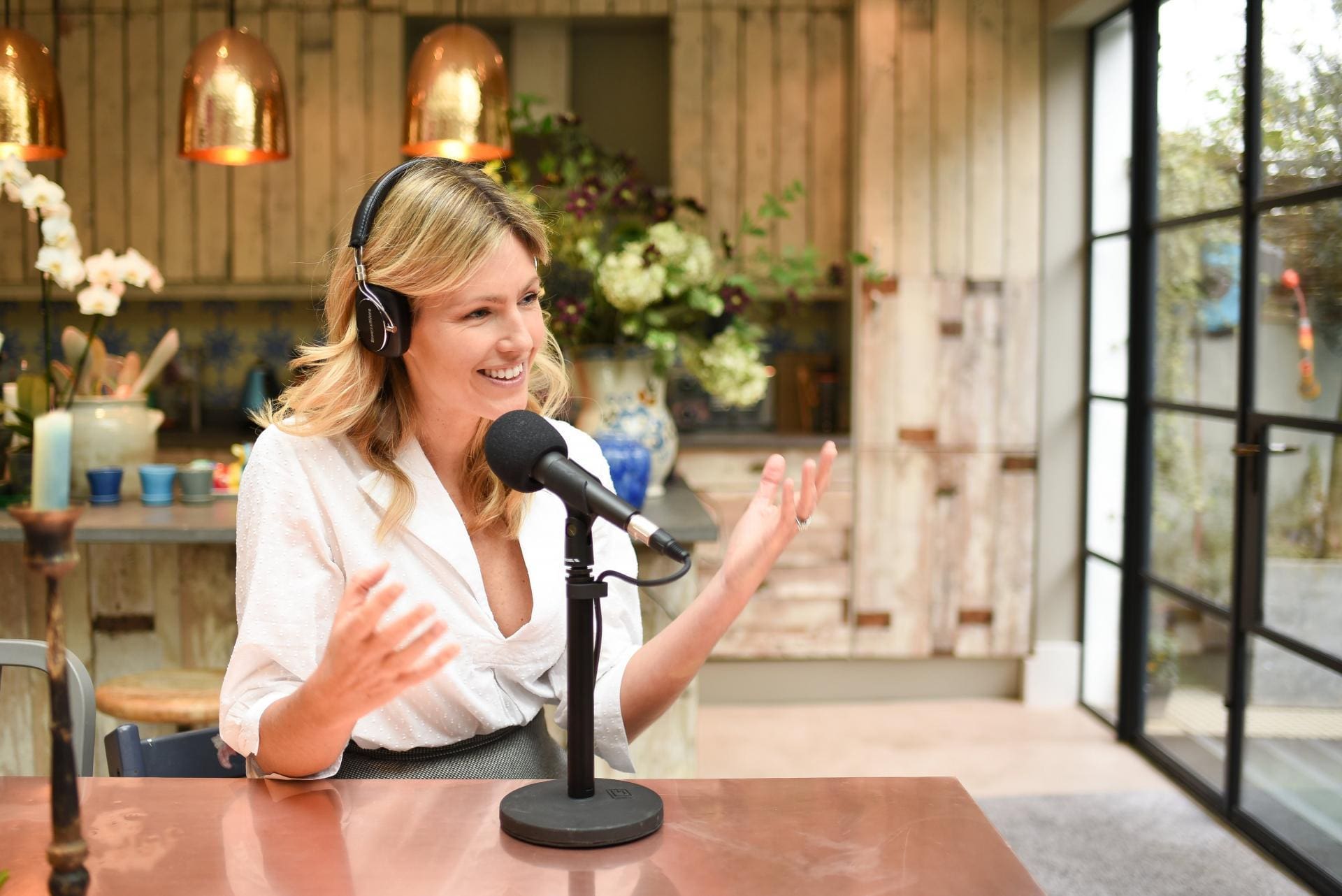
The better our understanding of the brain, the more scientists realise that sleep is the elixir to a happy healthy life. Sleep experts say that if when you’re woken up [by your alarm] you’re not ready to get up, you’re not getting enough sleep. So reverse it; instead of setting an alarm to get up, set an alarm to go to bed.
Just because you’re not going to work and seeing people in the flesh, doesn’t mean you shouldn’t get dressed and take pride in your appearance. Put on some nice clothes and make-up – it will perk you up. Set the table – even if it’s just you. Put some flowers out, light a candle, use some nice napkins and your best plates. If ever you need spoiling, it’s now. And don’t forget date night! Just because we can’t go out to restaurants doesn’t mean we can’t have a date. My husband Ben set up a table for two in the shed at the end of our garden, decked out with candles, some music and a lovely bottle of wine. We just ate lasagne, but a change of scenery made it really special. You can also use the fact that you don’t have dinner plans to eat with your kids, if you have them – not only is it a great way to engage with your children (and teach them table manners), but we also know eating earlier is better for us.
Exercise, whatever the weather, whatever you feel like. Even 10 minutes HIIT will release endorphins, giving you positivity and energy. Finish off with a cold shower after your hot shower – a rush of cold water will release adrenaline and make you feel on fire.
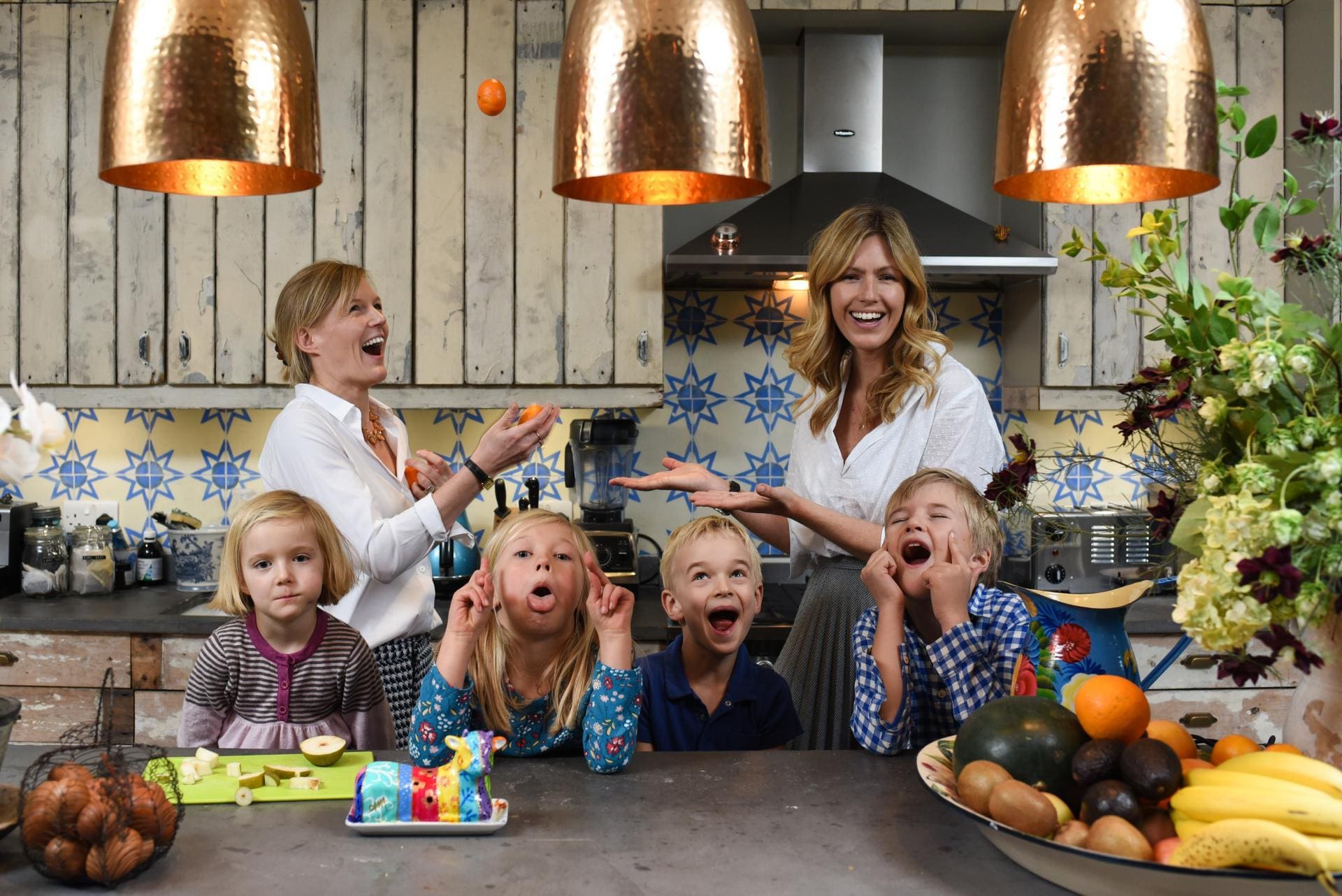
Children need boundaries to thrive – now we don’t have the boundaries of school, it’s even more important these are established at home. Getting your child into school uniform will subliminally signal to them that it’s time to work; make it non-negotiable that they sit and focus while they are learning. Have lunch together, don’t give them a choice about what they’re eating, and ensure they get outside and run around on their breaks. Make sure they are in bed at a decent hour.
Marina produces The Parent Hood podcast and As Good As It Gets with Beverley TurnerVisit thebumpclass.com
Get outside: Clodagh Mckenna, chef, presenter and author
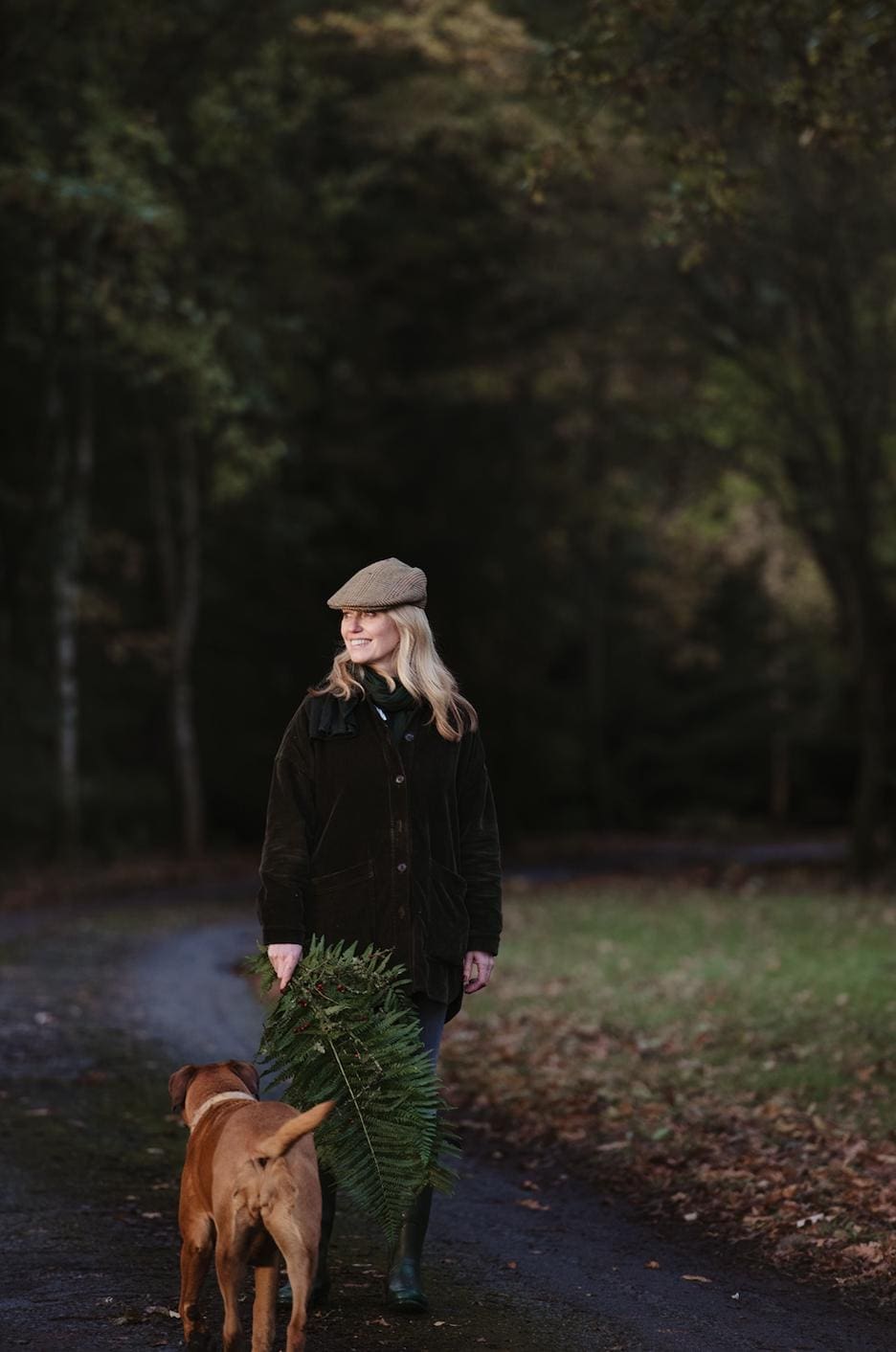
Focus on what you can control: Caroline Walker, founder of The Joyful Doctor
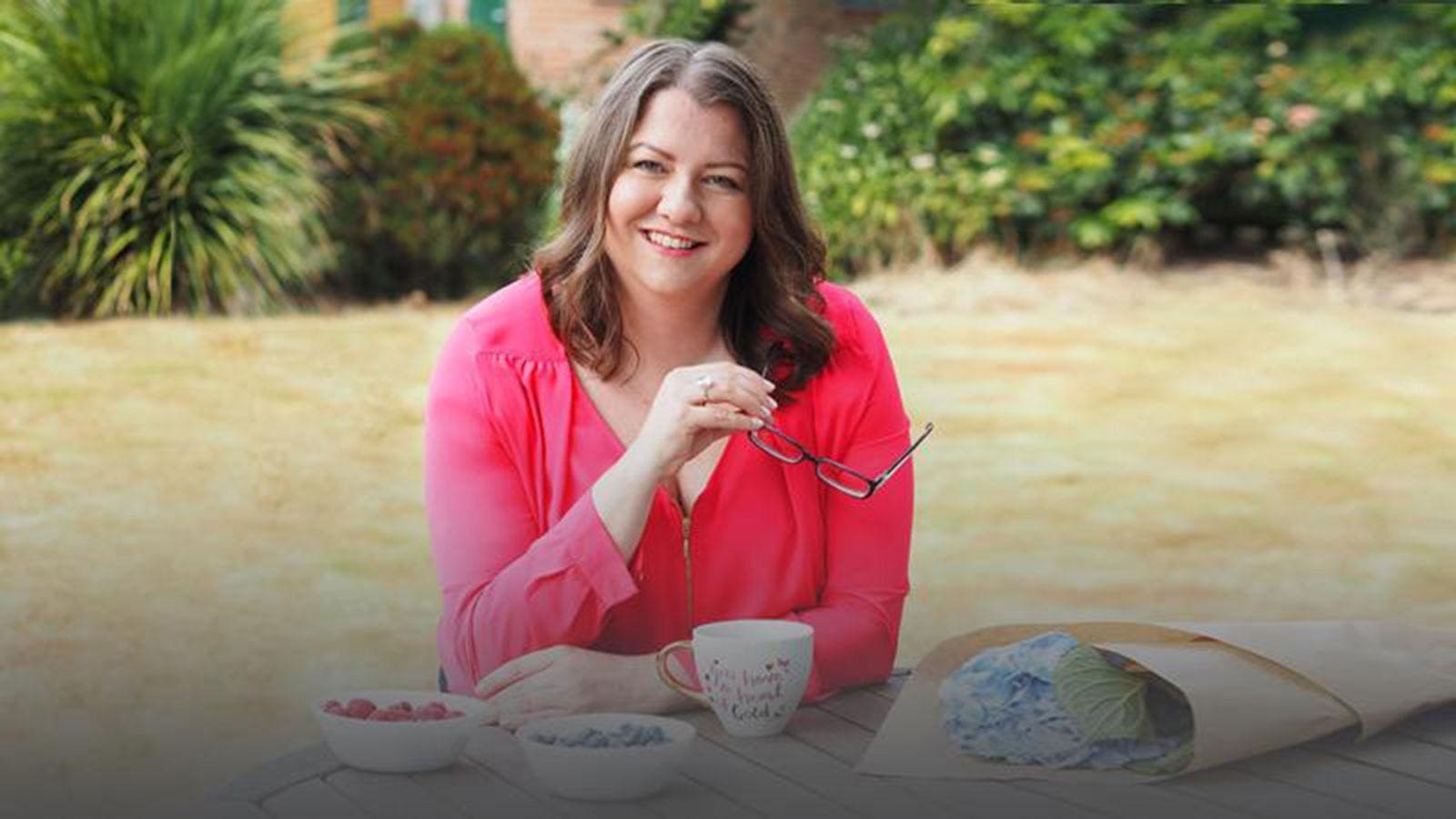
As human beings we love routine and predictability. When big changes come along and shake up our sense of security and certainty, we get easily rattled. So what can we do to help ourselves? Firstly, focus on what IS still true and predictable in your life – like the sun rising and setting each day, and the fact that you care deeply about your loved ones. No circumstances can change these certainties in life. To further ground you in the present moment, take some slow deep breaths (Google ‘box breathing’) and focus on things around you in your immediate environment – what you can see, feel, hear and touch. Both of these strategies will help your parasympathetic nervous system kick-in and you’ll start to feel calmer and more in control.
Whether it’s a special birthday celebration, your wedding, or that much needed holiday, we can feel really disappointed when our plans get cancelled. Let yourself feel disappointed – feelings need to be felt. Then write down a list of all the reasons you were really looking forward to the event/celebration. On the other side of the paper, write down one way you can try to still meet those needs over the coming days, weeks and months. For example, if your wedding has been cancelled and you were looking forward to seeing members of family you haven’t seen in a while, you could plan Zoom calls with them – one a week for the next few months. Or if you can’t wait to say your vows to your beloved, make a date and say some special pre-vows to one another in private or in front of your nearest and dearest online. This way – you don’t have to miss out on everything just because you’re missing out on something…
Save your bed for sleep: Kathryn Pinkham, founder of The Insomnia Clinic
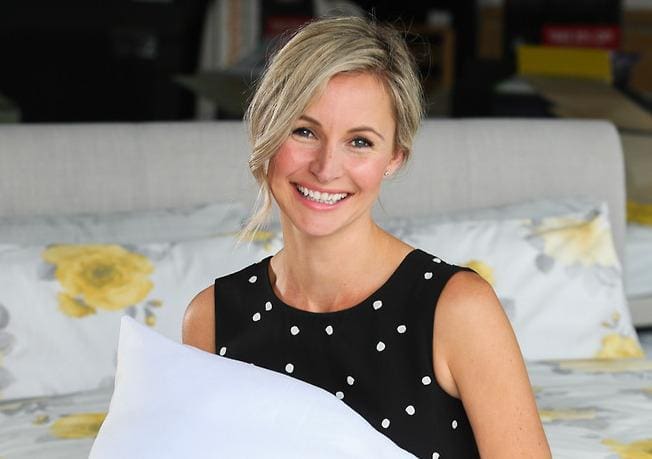
Set an alarm. Just because you don’t have to go to the office, still set your alarm! Get up every day at your normal time and stick to a routine as much as you can. Now is a time where it’s tempting to spend all day in your pyjamas and have a lie-in but keep your bedroom for sleeping. This is really important as, if you get up late and spend too much time in bed, then your natural appetite for sleep will weaken, leaving you wide awake at night.
Get outside as much as you can. If you have a garden or open space nearby then try and get out every day. You need daylight for mood and for regulating your body clock. As a minimum, make sure all windows and blinds are fully open at all times during the day.
Don’t connect your bed to stress. As you may be doing less, spending more time at home and have increased anxiety, you may find yourself awake during the night. If you are awake for large periods of time it is really important that you leave the bedroom. This will help you to stop creating a connection between bed and wakefulness which leads to further poor sleep.
Most of all, remember, you WILL cope with any sleep loss. It is absolutely normal at a time like this to find your sleep suffers but that is OK and over time you can improve your pattern again. For now, do what you can, manage your worries and stick to the techniques above and then wait for this all to pass.
Movement is key: Dalton Wong, founder of Twenty Two Training
